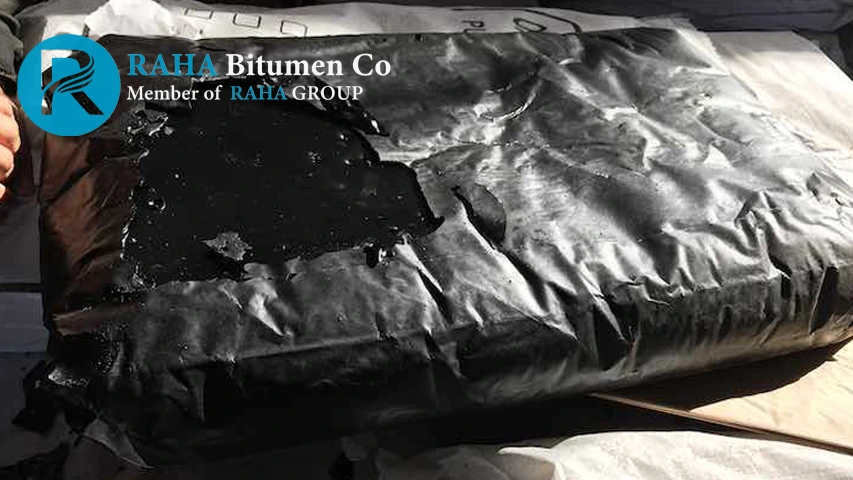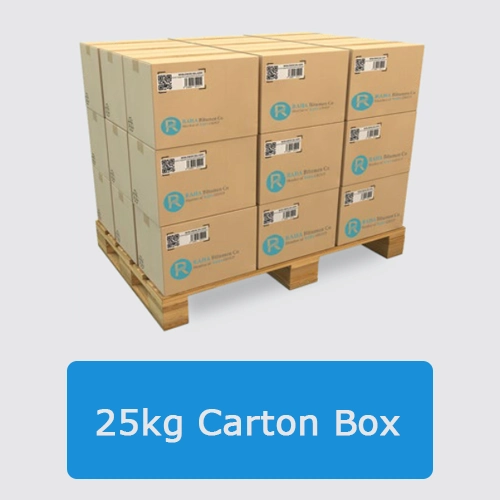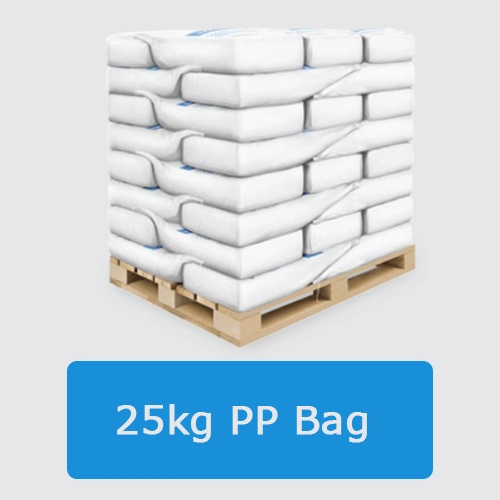
Description of Oxidized Bitumen 150/5
Oxidized Bitumen 150/5 has a softening point of 150°C and penetration of 15 decimeters. It’s produced through the blowing process of 60/70 petroleum bitumen by hot air and heating of hard bituminous oxide. It needs to be heated twice as much as 200-300°C to achieve viscosity flow. It’s classified as polycyclic aromatic hydrocarbons, hard and brittle, with a higher softening point than normal bitumen. The degree of penetration is lower and it’s sensitive to temperature changes. Asphaltene in oxidized bitumen can polymerize, making it elastic and known as rubber bitumen.
Oxidized bitumen 150/5 process
Oxidized Bitumen making in order for petroleum bitumen with a high degree of softness to have elasticity even in cold, the air is blown into it to oxidize. Blowing hot air into the pure bitumen in the last stage of the filtration process results in a blown bitumen (Rubbery Grade).
In this process, hot air at a temperature of 200 to 300 ° C is blown into the bitumen chamber by perforated pipes. As a result of this process, the hydrogen atoms in the molecules of bitumen hydrocarbons combine with the oxygen in the air, and with the formation of water, polymerization takes place, and bitumen with the properties of mineral bitumen is formed.
Oxidized bitumen production methods
1. Continuous blowing method
2. Discontinuous blowing method
These two methods are performed by two other methods called catalysis and anti-catalysis. Catalysis means adding some chemicals during the process to reduce the blowing reaction time.
The discontinuous production method is chosen for the following reasons.
• Ease and simplicity in changing the blowing mode and as a result producing with different grades.
• Ease of unit production.
• Ease of technology and low investment cost
Uses Of Oxidized Bitumen 150/5
150/5 products are mostly used for paving and roofing.
Common applications of asphalt include Portland cement paving, hydraulic applications, paint production, roofing, and pipelining.
Other uses of bitumen 150/5:
- Adhesives in electric limes and bases for artificial grass
- In asphalt paints to protect against metal corrosion
- Covering public works
- In the chemical industry
- Burned
- Varnish color
- Pulpboard paper
- Road Construction
- pavement
- Roof construction
- Textile processing
- Civil works
- Crack sealing and repairmen
- Building sealing and insulation
- cover
- Insulate and saturate
Packing of Oxidized bitumen 150/5
Oxidized bitumen 150/5 is available in various packing, including Kraft bags, melt able plastic bags, drums, as well as bulk Oxidized bitumen 150/5which is formed by hot air blasting until the desired specifications are achieved. Depending on the grade and penetration range, the oxidized bitumen 150/5 can be provided in any grade.
Optimum strength desi millimeter grade 150/5 is produced in compliance with ASTM standards and meets the following specifications. It has a melting point of 150°c and a penetration of 15 desi millimeters.
Major of Oxidized Bitumen Packings
25kg Carton Box- Palletized and Shrink
Wrapped:
- Loading 880 Carton Box in 20ft Contai-
ner= 22 Ton Net

25kg PP Bag- Palletized and Shrink
Wrapped:
- Loading 920 Bag in 20ft Container= 23
Ton Net

Storage & Handling
Heating packaged bitumen is a critical phase in many applications. A boiler located on-site is usually used to melt packaged materials. Nevertheless, control of the heating phase is imperative for the safety of the product as well as its quality.
It is crucial to control the heating phase of bitumen since it is a poor heat conductor.
Oxidized bitumen material should be broken up before being placed in the boiler. As a result, a larger surface area is exposed to the heat and a more even heating process is achieved.
As a result of the smaller exposed area, excessive heating at the base and sides of the boiler may result in localized overheating, altering the properties of the modified bitumen and potentially producing low lash vapors due to thermal cracking of the bitumen.
This low flash vapor volume determines the fire risk and thus the flash point of the oxidized bitumen becomes irrelevant. Melted bitumen should not be left in a boiler and reheated from cold because a pressurized pocket of low flash vapor is likely to develop if convection is reduced (lack of convection means poor heat transfer).
Monitor or control devices for temperature should be placed in a logical location. Since bitumen has a poor thermal conductivity, a thermometer located some distance from the heat source could read a hotter temperature (even hundreds of degrees) than the temperature near the heat source. Refer to the relevant MSDS for more information on Health and Safety.
Specification of Oxidized bitumen 150/5
| BITUMEN 150/5 | SPECIFICATION | TEST METHOD ASTM/EN13304 |
|---|---|---|
| SPECIFIC GRAVITY @ 25/25 CG | 1.04 | D-70 |
| PENETRATION @ 25 C | 5 | D-5 |
| SOFTENING POINT C | 150 | D-36 |
| LOSS ON HEATING(WT) % | 0.1 | D-6 |
| FLASH POINT C | 340 | D-92 |
| SOLUBILITY IS CS2(WT) % | 99.5 | D-4 |
| DUCTILITY @ 25 °C | 1.8 | 1.5 CM MIN |
| SATURATES (ASTM D2007) | 6% | D2007 |
| ASPHALTENES (IP 143) | 37% | IP 143 |
| RESINS | 28% | D2007 |
Related Posts


